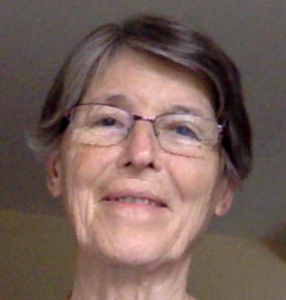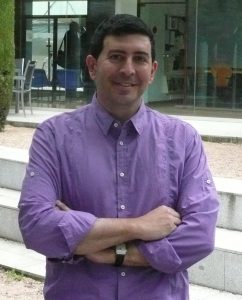 Andrée Tiberghien obtained her Ph.D. in condensed matter physics from the University of Paris 6 in 1972. She was a Member and Vice-Chair woman of the International Commission of Physics Education (ICPE) of the International Union of Pure and Applied Physics (IUPAP). She was a member of the science expert group of PISA 2006, 2009, and 2015.
Andrée Tiberghien obtained her Ph.D. in condensed matter physics from the University of Paris 6 in 1972. She was a Member and Vice-Chair woman of the International Commission of Physics Education (ICPE) of the International Union of Pure and Applied Physics (IUPAP). She was a member of the science expert group of PISA 2006, 2009, and 2015.
She started her research in science education with studies on students’ conceptions in several domains (electricity, heat-temperature, light). Her research work also focused on students’ understanding development during teaching sequences. In the case of energy, she also worked on the development of teaching sequences in a collaborative research with teachers, and she extended this perspective in analysing the complex didactic transposition of the concept of energy to the extent that energy is viewed differently according to the scientific communities of reference, physics and technology in particular. She has contributed for more than twenty years to collaborative research groups of researchers and teachers to produce teaching resources and published research papers on the design based research of teaching resources. These groups worked on various themes of physics at upper secondary schools and the question of the references of scientific practices in the design of teaching sequence lead her to develop a framework based both on the epistemological analysis of scientific modelling practice and on learning hypotheses. This framework helps to design teaching sequence and to analyse data of classroom situations in physics.
Currently her research work is focused on classroom practices, including assessment practices and on the design of tools for teacher professional development.
She created and currently contributes to a database project on video recordings of teaching and training situations; this project also aims to develop theoretical and methodological approaches to analyse video and associated data of classroom situations (ViSA).
She is also involved in a project on secondary analysis of PISA data focused on students’ competencies and their assessment.
She is currently “directrice de recherche émérite” at CNRS (UMR ICAR, University of Lyon, France).
J osep Lladós received the degree in Computer Sciences in 1991 from the Universitat Politècnica de Catalunya and the PhD degree in Computer Sciences in 1997 from the Universitat Autònoma de Barcelona (Spain) and the Université Paris 8 (France). Currently he is an Associate Professor at the Computer Sciences Department of the Universitat Autònoma de Barcelona and a staff researcher of the Computer Vision Center, where he is also the director since January 2009. He is associate researcher of the IDAKS Lab of the Osaka Prefecture University (Japan). He is chair holder of Knowledge Transfer of the UAB Research Park and Santander Bank. He is the coordinator of the Pattern Recognition and Document Analysis Group (2014SGR-1436). His current research fields are document analysis, structural and syntactic pattern recognition and computer vision. He has been the head of a number of Computer Vision R+D projects and published more than 230 papers in national and international conferences and journals, and supervised 12 PhD theses. J. Lladós is an active member of the Image Analysis and Pattern Recognition Spanish Association (AERFAI), a member society of the IAPR. He is currently the chairman of the IAPR-EC (Education Committee). Formerly he served as chairman of the IAPR-ILC (Industrial Liaison Committee), the IAPR TC-10, the Technical Committee on Graphics Recognition, and also he is a member of the IAPR TC-2 (Structural Pattern Recognition), IAPR TC-11 (Reading Systems) and IAPR TC-15 (Graph based Representations). He is chief editor of the ELCVIA (Electronic Letters on Computer Vision and Image Analysis). He is co-Editor in Series in Machine Perception and Artificial Intelligence (SMPAI) of World Scientfic Publishing Company. He serves on the Editorial Board of the Pattern Recognition journal, in IJDAR (International Journal in Document Analysis and Recognition), the Frontiers in Digital Humanities journal, and also a PC member of a number of international conferences. He was the recipient of the IAPR-ICDAR Young Investigator Award in 2007. He was the general chair of the International Conference on Document Analysis and Recognition (ICDAR’2009) held in Barcelona in July 2009, and co-chair of the IAPR TC-10 Graphics Recognition Workshop of 2003 (Barcelona), 2005 (Hong Kong), 2007 (Curitiba) and 2009 (La Rochelle). Josep Lladós has also experience in technological transfer and in 2002 he created the company ICAR Vision Systems, a spin-off of the Computer Vision Center working on Document Image Analysis, after winning the entrepreneur award from the Catalonia Government on business projects on Information Society Technologies in 2000.
osep Lladós received the degree in Computer Sciences in 1991 from the Universitat Politècnica de Catalunya and the PhD degree in Computer Sciences in 1997 from the Universitat Autònoma de Barcelona (Spain) and the Université Paris 8 (France). Currently he is an Associate Professor at the Computer Sciences Department of the Universitat Autònoma de Barcelona and a staff researcher of the Computer Vision Center, where he is also the director since January 2009. He is associate researcher of the IDAKS Lab of the Osaka Prefecture University (Japan). He is chair holder of Knowledge Transfer of the UAB Research Park and Santander Bank. He is the coordinator of the Pattern Recognition and Document Analysis Group (2014SGR-1436). His current research fields are document analysis, structural and syntactic pattern recognition and computer vision. He has been the head of a number of Computer Vision R+D projects and published more than 230 papers in national and international conferences and journals, and supervised 12 PhD theses. J. Lladós is an active member of the Image Analysis and Pattern Recognition Spanish Association (AERFAI), a member society of the IAPR. He is currently the chairman of the IAPR-EC (Education Committee). Formerly he served as chairman of the IAPR-ILC (Industrial Liaison Committee), the IAPR TC-10, the Technical Committee on Graphics Recognition, and also he is a member of the IAPR TC-2 (Structural Pattern Recognition), IAPR TC-11 (Reading Systems) and IAPR TC-15 (Graph based Representations). He is chief editor of the ELCVIA (Electronic Letters on Computer Vision and Image Analysis). He is co-Editor in Series in Machine Perception and Artificial Intelligence (SMPAI) of World Scientfic Publishing Company. He serves on the Editorial Board of the Pattern Recognition journal, in IJDAR (International Journal in Document Analysis and Recognition), the Frontiers in Digital Humanities journal, and also a PC member of a number of international conferences. He was the recipient of the IAPR-ICDAR Young Investigator Award in 2007. He was the general chair of the International Conference on Document Analysis and Recognition (ICDAR’2009) held in Barcelona in July 2009, and co-chair of the IAPR TC-10 Graphics Recognition Workshop of 2003 (Barcelona), 2005 (Hong Kong), 2007 (Curitiba) and 2009 (La Rochelle). Josep Lladós has also experience in technological transfer and in 2002 he created the company ICAR Vision Systems, a spin-off of the Computer Vision Center working on Document Image Analysis, after winning the entrepreneur award from the Catalonia Government on business projects on Information Society Technologies in 2000.
 Anastasia Georgaki is Associate Professor in Music Technology at the Music Department of the University of Athens and head of the Laboratory of Music Acoustics and Technology of the same Department (labmat.music.uoa.gr)
Anastasia Georgaki is Associate Professor in Music Technology at the Music Department of the University of Athens and head of the Laboratory of Music Acoustics and Technology of the same Department (labmat.music.uoa.gr)
She studied Physics (University of Athens, 1986) and Music (accordion, piano, harmony, counterpoint/Hellenic Conservatory of Athens, 1981-1990) and continued her studies at IRCAM (Paris, 1990-1995) in computer music and music technology (DEA/1991 and PhD/1995 in Music and Musicology of the XXth century, IRCAM/EHESS). During the period 1995-2002 she has been teaching as a lecturer in Music Acoustics and music technology at the Music Department of the Ionian University at Corfu. Since 2002, she is teaching matters in Music Technology at the Music Department of the University of Athens. Since 2008 she is teaching in three different Master programs at the University of Athens and the School of the Fine Arts (music and new media, sound ways of knowledge, digital visual music). She is also supervisor of PhD candidates on the area of singing voice analysis and interactive systems.
She has participated in many international computer music and musicological conferences in Europe, Canada, Latin America and has published around 65 articles concerning the synthesis of the singing voice, the interactive music systems, Greek electroacoustic music composers (Xenakis, Adamis, Logothetis), physical modelling of instruments, music technology in education and acoustic ecology matters. She has chaired and co-chaired seven symposia and conferences as: Music and Computers (Ionian University, 1998), First Greek Symposium on Music Informatics (Ionian University, 2000), International Symposium Iannis Xenakis (University of Athens, 2005), 4th Sound and Music computing Conference 2007 (Lefkada, 2007), Pythagorean views on music and mathematics (Pythagorion, 2009), Anestis Logothetis Tribute (Athens 2012) and the Joint conference ICMC/SMC2014 in Athens (14-20 September 2014: www.icmc14-smc14.net) under the special theme: Music technology meets philosophy (from digital Echos to virtual ethos).
She has collaborated also with the Greek Research Institute for Language and Speech Processing (ILSP) in music information retrieval for European projects (Wedelmusic), with IEMA, with the Voice lab of the Department, of Informatics and telecommunication, with the Onassis foundation cultural canter, IRCAM, University of Paris VIII, etc. Her research projects focus on the analysis and acoustics/psychoacoustics of the Greek singing voice, controlling synthetic voices through a MIDI-accordion, the development of tools for the application of new technologies in music creation and education, musicological aspects on the impact of technology in contemporary music creation, methodological issues of music technology in interdisciplinary education, acoustic ecology and soundscapes.
Member of numerous committees in Greece and abroad (member of the SMC steering Committee and ICMA).
She is also a professional accordion player (www.novitango.gr) and active musician.
